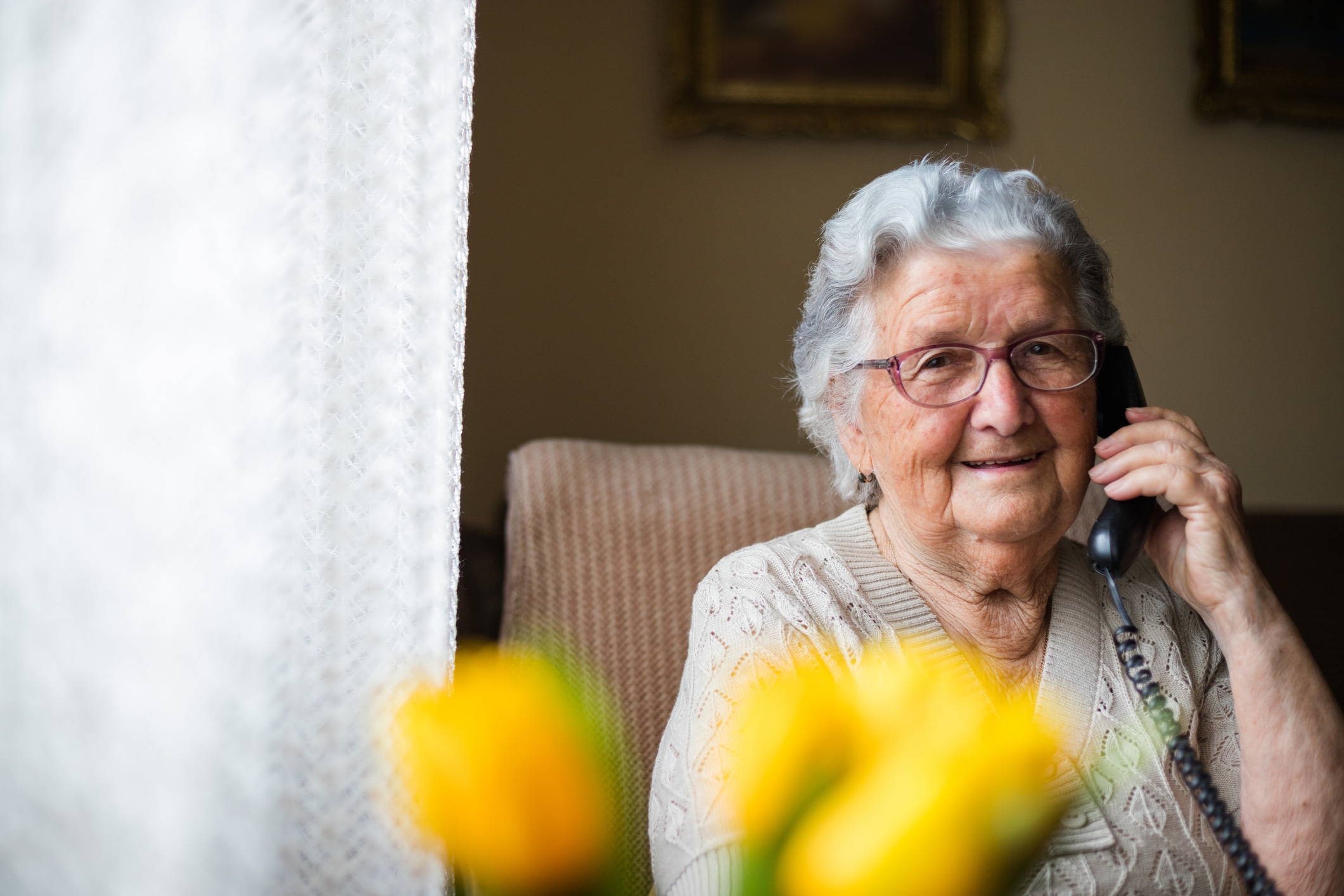5 Communities Nearby
More results...
Emotional Wellbeing | December 19, 2023

Many adult children live a sizable distance from their aging parents due to work or other commitments. Despite the distance, they may find that they are still in charge of caregiving responsibilities for their elderly mom or dad.
If you live more than an hour away from your parent who relies on you for care, you are considered a long-distance caregiver. This can be challenging – handling the day-to-day responsibilities that come with caregiving as well as juggling travel time, expenses, work, and other obligations. Most often the biggest challenge for long-distance caregivers is staying informed and assured that your parent is in capable hands.
Thankfully, there are ways to help you stay involved from afar. Let’s take a look at six long-distance caregiving tips that can help you better care for your loved one.
If you are new to long-distance caregiving, one of the most important aspects to prioritize is gaining access to critical health and financial information. Having proper information channels and legal authority to make financial and health-care decisions is critical for all primary caregivers. When you visit next, make sure your loved one has the right paperwork, including proper advanced directive forms for your state. By filling out these directive forms, you will gain power of attorney (POA) privilege and can access critical information from a distance.
Account access and permission can include:
While discussing healthcare and finances can be difficult, it’s critical that you get a comprehensive understanding about what is going on in their life. Keep in mind that several of the items listed above require family member approval and specific POA paperwork to gain access.
While you have the ability to handle most caregiving duties from afar, having a team of helpers near your loved one that are willing to assist in daily tasks can be incredibly helpful. From friends and family to professional caregivers, consider organizing a group to handle certain in-person tasks. This could include trusted individuals that can help with tasks such as:
If you don’t have the ability to assemble a team of local helpers, consider reaching out to a reputable caregiving professional. These professionals are available to provide coordinated care with doctors and family members to help your loved one with daily activities so they can live independently in the comfort of their own home.
Staying in touch with your loved one and additional helpers is critical to providing long-distance care. Whether you choose to use an organization app, group text, or traditional phone calls, you should consider creating ways to maintain open lines of communication with everyone involved in your loved one’s care. If you feel you need additional monitoring to ensure the health and safety of your loved one, you could consider getting a home monitor system or wearable device that can keep track of your loved one in case of an emergency.
One of the greatest fears of long-distance caregivers is what happens if their loved one is having a medical emergency. It’s crucial to have an emergency plan in place to avoid the delay of care. When developing an emergency plan, be sure to have the contact information of a neighbor or local helper as well as a spare key or access code to enter the home.
When creating your emergency plan, keep in mind whether you have a medical Power of Attorney (POA).. If a medical emergency does take place and you don’t have a medical POA, communication with your loved one’s care team can be limited.
Ready.gov is a government run program that has a guide for creating emergency plans for seniors that can help you.
When you visit, it’s important to keep home safety in mind and look out for any potential issues before they become bigger problems. Noticing any potential leaky faucets, leaks, or strange odors can help you nip any potential danger in the bud. You should also try and pay greater attention to any household chores that are being neglected such as laundry, lawn maintenance, and grocery shopping. This could be an indicator that your loved one needs some local help to assist with daily tasks.
As a long-distance caregiver, you usually have a full list of tasks to attend to during your in-person visits. While this is a great time for you to get a jump on any potential issues, be sure to step outside the role of caregiver and enjoy the time you have with your loved one. Set aside a few hours during your visit for quality time doing the activities that you both love.
While you may be unable to provide “hands-on” support for your loved one, National Church Residences can step in and surround your older loved one with the compassionate care they need and deserve.
National Church Residences offers a wide array of senior housing options and services to enable seniors to live healthier and more satisfying lives. We take an individual approach to senior care, offering quality senior living options and long-term care services including independent living, assisted living, and home health care for seniors to make the most of their golden years.
It’s important to know your options to discover which service is right for your loved one. Give us a call at 844-465-6063 to talk to one of our friendly staff members and schedule a tour of a local community today.
January 24, 2023 - Emotional Wellbeing
Elderly parents can resist help for a variety of reasons. Find out the best ways to approach your aging parents about accepting the help they need.
January 31, 2023 - Emotional Wellbeing
Spending time with your loved ones can help prevent feelings of loneliness and isolation. Here are seven fun ways to stay social with your aging parents.
February 2, 2023 - Emotional Wellbeing
Being a caregiver is an important, yet stressful responsibility. Find out what you can do to avoid burnout when you’re taking care of your loved ones.